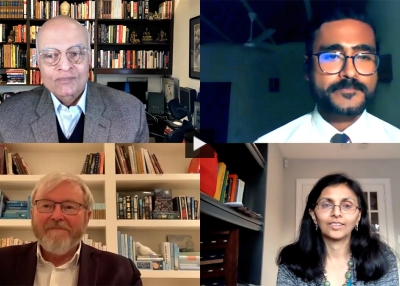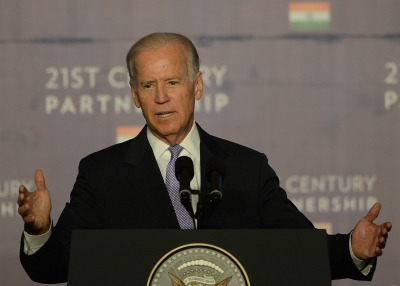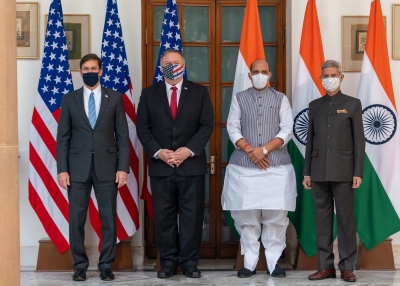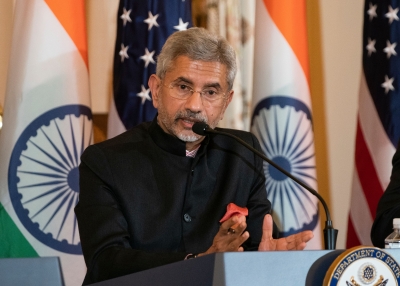Nature and Nurture: How the Biden Administration Can Advance Ties With India
Issue Paper
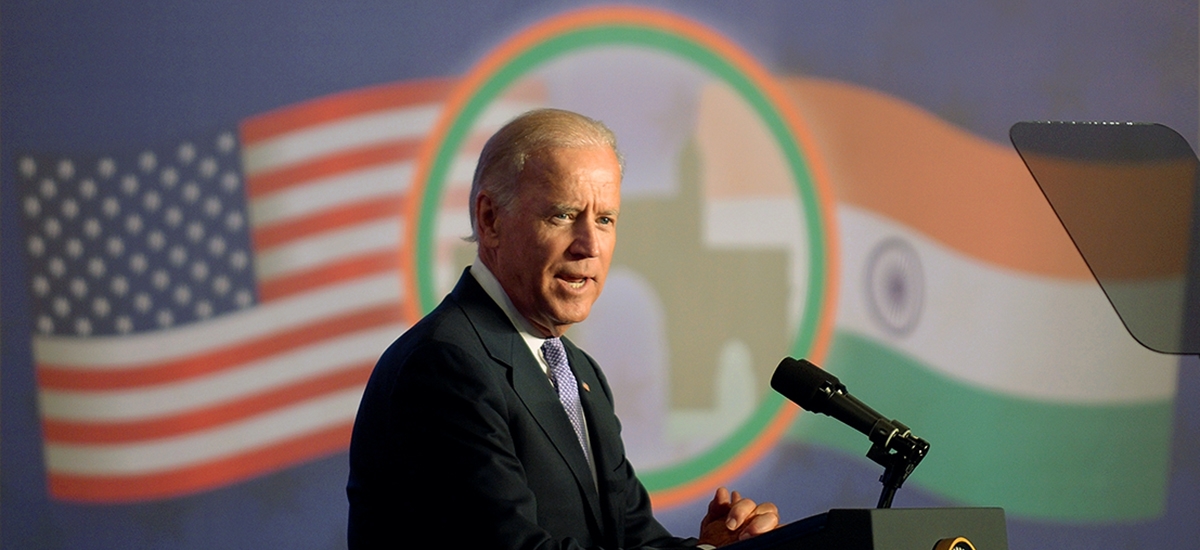
U.S. Vice-President Joe Biden at the Bombay Stock Exchange on July 24, 2013 in Mumbai, India. (Punit Paranjpe/AFP/Getty Images)
As the United States is set to embark on the administration of Joseph R. Biden Jr., the U.S.-India relationship is facing new tests. Biden, who deemed India a “natural partner” on the campaign trail, will have the task of upgrading a mature relationship at a time of new global dynamics and challenges.
A growing convergence between the views of New Delhi and Washington regarding Beijing will continue to facilitate a stronger security partnership. At the same time, the coronavirus pandemic has damaged both economies and strengthened support for economic nationalism, which may impede stronger commercial cooperation and the two nations’ ability to take on China. Moreover, a further weakening of democratic norms in India could raise difficult questions for the new U.S. administration.
This Asia Society Policy Institute (ASPI) issue paper, “Nature and Nurture: How the Biden Administration Can Advance Ties with India,” outlines the competing pressures currently shaping U.S.-India ties. In the paper, ASPI Associate Director Anubhav Gupta provides a blueprint for how the incoming U.S. administration can advance bilateral ties to the next level, nurturing what Biden considers “natural.” Presenting a series of ten recommendations to strengthen the U.S.-India partnership, the paper suggests that a Biden administration
- Expand the scope of the relationship to elevate health, digital, and climate cooperation.
- Turn the page to a positive commercial agenda that emphasizes reform and openness.
- Renew U.S. leadership and regional consultation in the face of China’s rise.
- Emphasize shared values as the foundation of the relationship.
ABOUT THE AUTHOR
Anubhav Gupta is an associate director with the Asia Society Policy Institute (ASPI) in New York. He develops and coordinates ASPI’s initiatives and research related to South Asia, with a particular focus on India.

